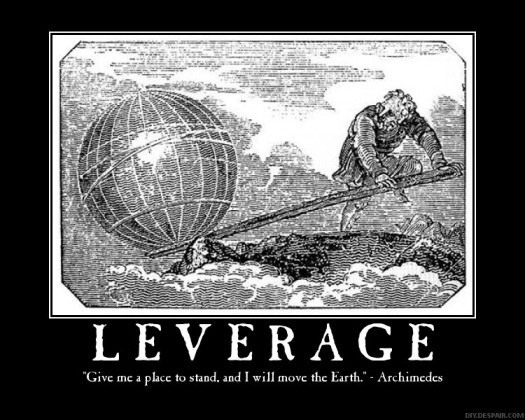Deleveraging Through… Deflation? Has Ending QE Been The Ulterior Motive All Along? Andrew Smithers Thinks So
Courtesy of Tyler Durden
 Confused by recent proclamations by Hoenig, Plosser, and other unnamed Fed members, who want an end to QE? Even more confused that this could actually happen? Andrew Smithers, former head of SG Warburg asset management before starting Smithers & Co., may have some iconoclastic insight into this development, which at its core is fundamentally deflationary, and a stark refutation to everything the Fed (presumably) stands for. A paradox? Smithers breaks the "Econ 101" mold in this fascinating interview with Kate Welling. The most provocative perspective: Smithers goes against the grain of every economic textbook which says the only way to inflate debt away (deleverage) is by, well, inflation. Instead, what Smithers suggests is a slow, gradual process of deflation, in which incremental cash flow is converted into equity, and pushes debt out.
Confused by recent proclamations by Hoenig, Plosser, and other unnamed Fed members, who want an end to QE? Even more confused that this could actually happen? Andrew Smithers, former head of SG Warburg asset management before starting Smithers & Co., may have some iconoclastic insight into this development, which at its core is fundamentally deflationary, and a stark refutation to everything the Fed (presumably) stands for. A paradox? Smithers breaks the "Econ 101" mold in this fascinating interview with Kate Welling. The most provocative perspective: Smithers goes against the grain of every economic textbook which says the only way to inflate debt away (deleverage) is by, well, inflation. Instead, what Smithers suggests is a slow, gradual process of deflation, in which incremental cash flow is converted into equity, and pushes debt out.
Indeed, this is precisely what we have been seeing especially in the REIT sector where numerous names, courtesy of BofA, have raised equity on the basis of imaginary valuations, which may just become a self-fulfilling prophecy if enough people buy into them, and by throwing cash at these companies, allow them to lower their debt-to-capitalization ratios. Then again, with another half a trillion in equity needed for the REIT sector to fund itself out of a mid-term funding crisis, that’s purely a pipe dream. However the bigger picture of the Smithers perspective is that this deflationary approach is exactly what the Fed may be engaged in. By distracting the increasingly more vocal inflation hawks, who anticipate that inflation is and always will be the driving motive of the Chairman, Bernanke could very well be pursuing just the opposite: a slow-bleeding deflationary trend.
The clincher from the interview which took place in November 2009:
I think that you will find that several economists over the next few weeks and months will be expressing concern about quantitative easing…Because the most damaging thing that could happen to the world economy would be a third asset bubble collapse…Probably the best way of ensuring that is by making sure that asset prices simply don’t go up much more. What we need over time is a rebalancing of the economy in which we get deleveraging going on. And there are only two ways to delever: One is by generating cash flow and the other is by replacing debt with equity, either through bankruptcy, via the banking system, or directly, through the corporate sector. Now if you have deleveraging as the main driving force, you can only achieve that goal, really, if you switch the debt from the private sector to the public sector. Otherwise, you get the attempt for everybody to save more and everybody to invest less and you fall clearly into one of those problems that Keynes identified, where the adjustment process, rational on the individual level, just digs the economy, as a whole, deeper into a recession… [For this plan to be effective] we now want a period of slow contained growth, in which we can get a lot of deleveraging going on – without it having to burden the public sector debt by too much. For that, you need time and helpful markets. The sort of ideal market is one that down a bit – that has periodic bounces. So people can take advantage of the bounces to issue a great deal of equity, which also, of course means that the market is more likely to go down thereafter?
Is the entire equity market merely a plaything in one giant Fed-controlled deleveraging ploy? Are equity prices indicative of anything besides what the Fed wants them to be? Some day, when all the Fed’s secrets are revealed, we will know for sure. For now, all we can do, is to continue speculating and pointing out the obvious and ever more increasing irregularities in what was formerly at least passable for an efficient equity market.
Full Smithers interview.


